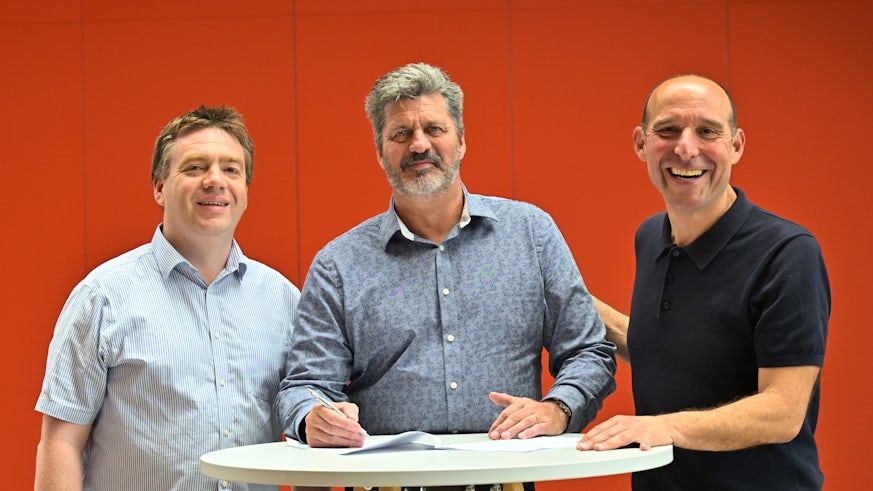Cardiff’s 3D printing knowhow keeps cash flowing
27 September 2023

Experts in leading-edge 3D printing have teamed up with an international company to help them deliver on-time parts for cash machines.
Researchers from Cardiff University’s RemakerSpace have advised Glory Global Solutions – a leader in cash technology solutions – to help them manage key stages of their product life cycle in a cost effective and efficient manner.
By using state of the art manufacturing techniques and methodologies the collaboration aims to introduce 3D printing as a viable production process.
Glory conceives, manufactures, and supplies machines for coins and notes on a global scale.
The partnership flourished through the Business School’s long-standing collaboration with DSV - the global transport and logistics giant – who introduced Glory to PARC.
The Japanese company recognised Cardiff Business School’s long-established reputation for inventory forecasting and supply chain management, led by the PARC Institute of Manufacturing, Logistics and Inventory
Glory sought to investigate whether 3D printing low volume production parts and spares on demand could help the company reduce stock, lead times and tooling costs, whilst maintaining consistent build quality, which is the absolute priority.
Mark Fifield, Group Quality Director, Glory Global Solutions, said: “Our association with RemakerSpace has significantly improved our understanding of the circular economy, and particularly 3D printing as a potential and realistic option for manufacturing production parts. Reduced global footprint and improved efficiencies with local manufacture, will help reduce our impact on the planet, and benefit our customers with express delivery of selected parts.”
Professor Mike Wilson, Executive Vice President at DSV Solutions and Co-Founder and Industry Director of PARC, said: “‘DSV was able to link Glory with RemakerSpace through its long-term partnership with Cardiff University and this is an integral strategy to improve the sustainability of our customers’ supply chains.”
RemakerSpace’s role was to identify materials, suitable components and processes that could help the company embed 3D printing to become a more sustainable business by reducing warehouse inventories, shipping costs and unnecessary waste.
Professor Aris Syntetos, PARC and RemakerSpace Director, said: “3D printing offers an opportunity to approach operational problems from a different perspective. The ‘last time buy’ (forecasting the number of spare parts we need to buy, before their production is stopped, to support the remaining life of some equipment) is a notoriously difficult problem to solve, statistically.
“But 3D printing offers the opportunity to print parts on demand without the need to keep stock. Our collaboration with Glory has already enabled fresh and interesting insights to emerge. We are proud to collaborate with such a forward-thinking organisation and we look forward to seeing the RemakerSpace offering even more value to our industrial partners.”
Professor Mohamed Naim, Head of Logistics and Operations Management, Cardiff Business School, said: “This is a continuation of the great track record of our academic colleagues in this area in actively engaging with the business community to support the sustainability of manufacturing firms operating in the UK.”
A not-for-profit dedicated to enabling the circular economy, RemakerSpace works with community groups, businesses and education providers to drive the circular economy in Wales and beyond.
Located at Cardiff University’s Social Science Research Park, RemakerSpace is funded by Welsh Government and Cardiff Business School to offer a unique combination of equipment including conventional tools through to the latest 3D printers and a visualisation suite.
Share this story
Learn how our cutting-edge research, technology transfer, business development and student enterprise drive our vision.




